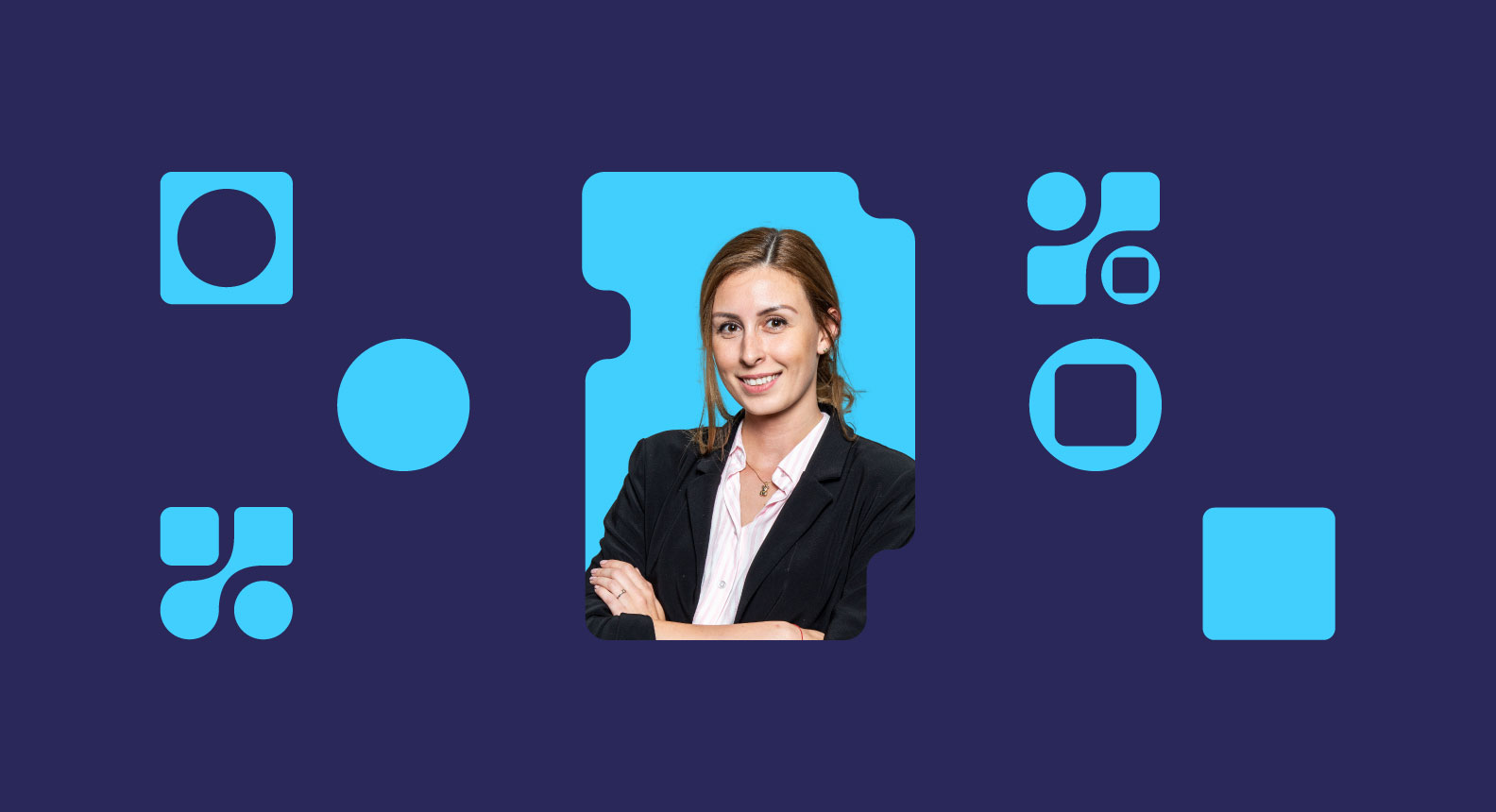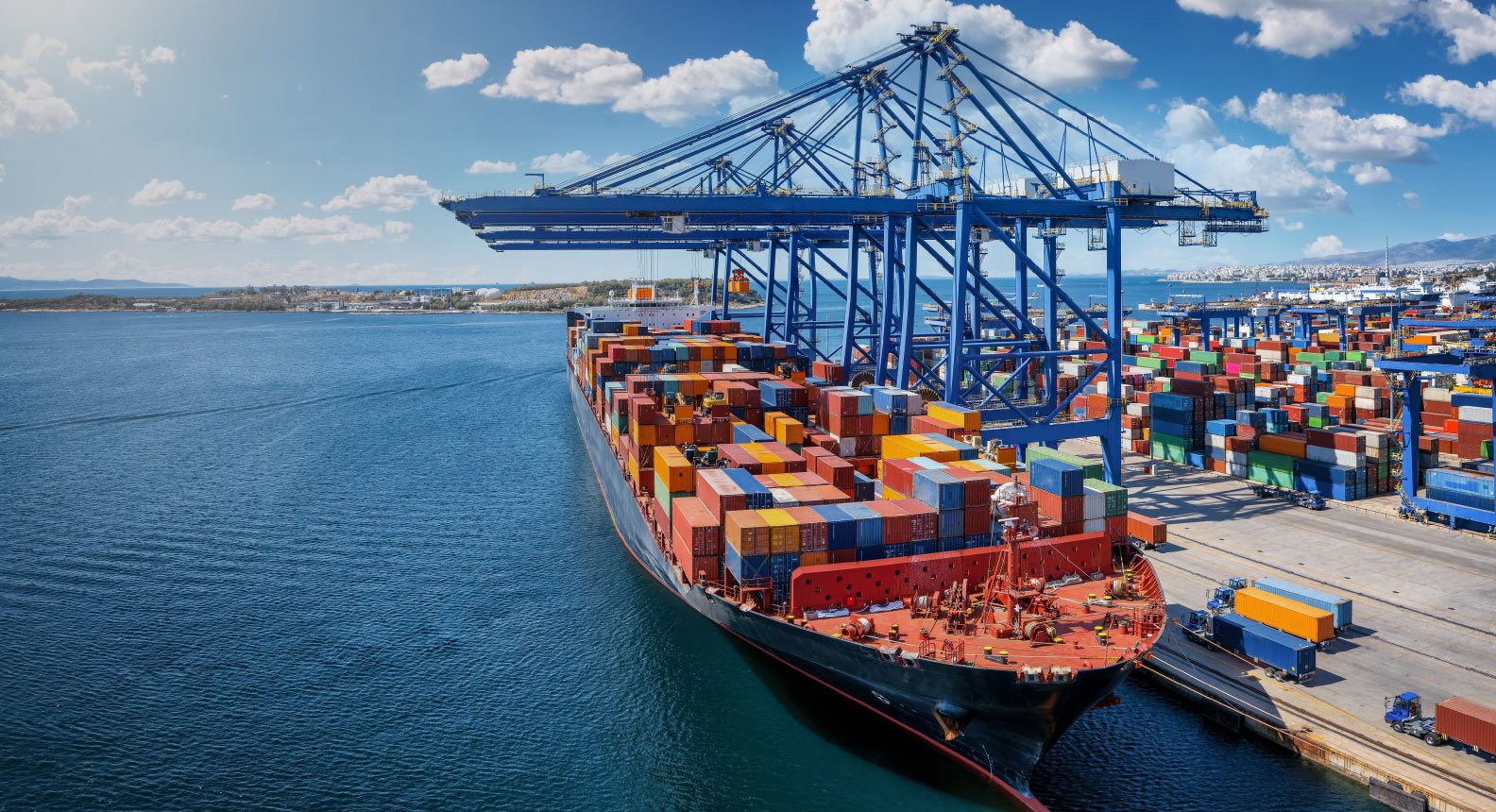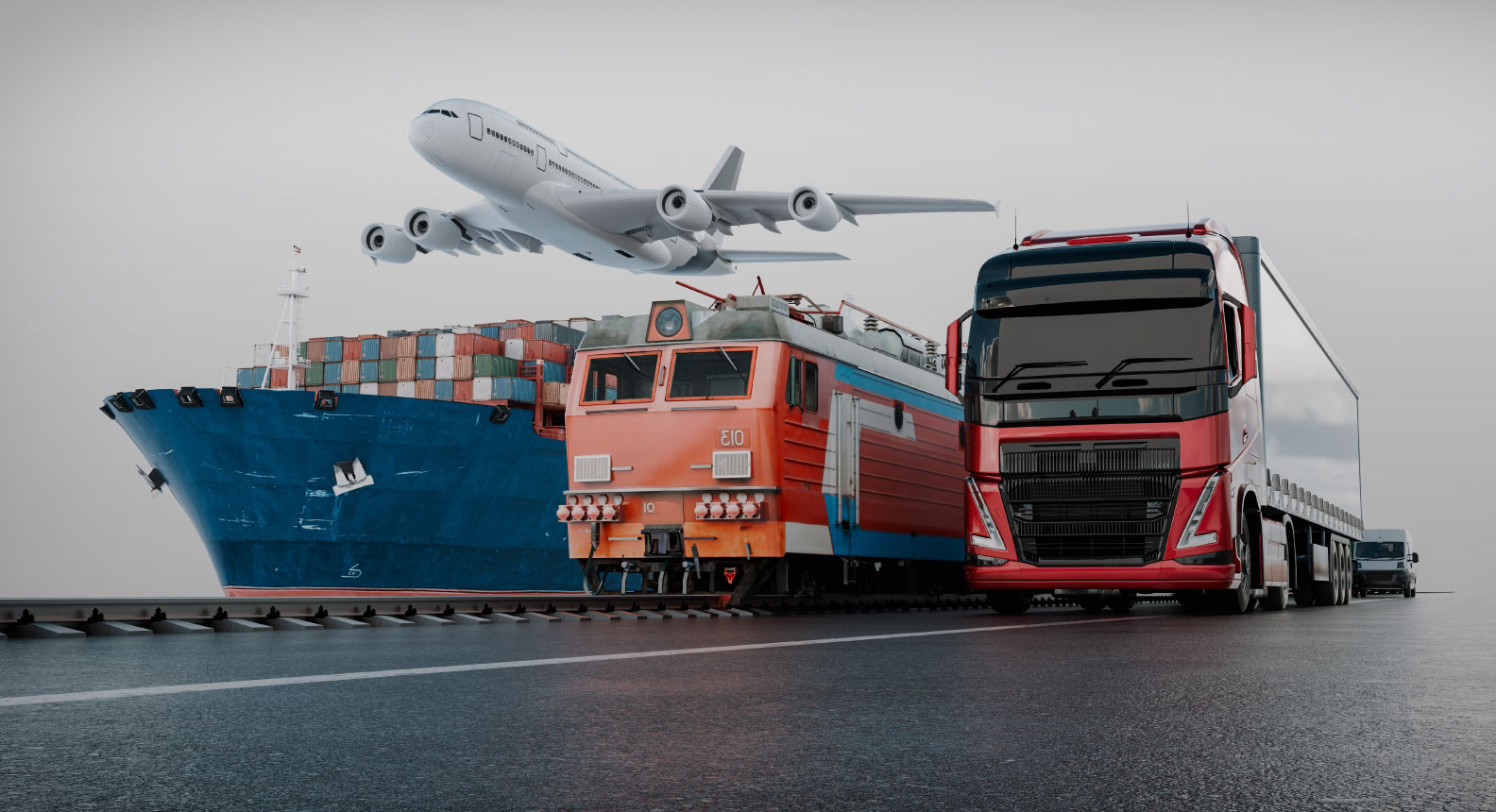Sirma is pleased to announce that Monika Ilieva has taken on a new role as Senior Vice President in the Transportation and Logistics vertical. In this position, she will lead the transformation and strategic direction of the practice. All of the Sirma team wishes her success and bold ambitions in her new endevaour.
Bio: Monika Ilieva has over 16 years of experience in transportation and logistics and was promoted as SVP in July 2025. She began her career in logistics before transitioning into software development and technology consultancy, ultimately advancing to IT leadership and driving technology transformations. She has led large-scale projects for DHL and other global brands, focusing on smart pricing, route optimisation, and rating solutions. As a certified project manager with Lean Six Sigma qualifications, Monika delivers business-aligned solutions and fosters collaboration between technology and operations to create a significant impact within her organisation._
Monika shared her vision by answering several questions, providing insights into her commitment to driving growth and innovation in one of Sirma’s most challenging technology sectors. We value her contributions, as they help us to understand her plans to promote technology-driven growth, prioritise innovation, and develop a team culture that delivers outstanding customer experiences in the rapidly evolving transportation and logistics sector.
Q: Monika, congratulations on your promotion to Senior Vice President (SVP) in the transportation and logistics technology (T&L) practice. What are your top priorities for your first year, and how will you measure success?
M: I am pleased to have gained the trust of Sirma’s management, which has allowed me to lead the T&L vertical within the group effectively. Since I took on this role, I have focused on building a strong foundation by structuring the team, refining our processes, and aligning our approach with the strengths and expertise we possess. This strategy ensures that we consistently deliver quality outcomes for our clients. In my first year, I have two main priorities: first, expanding into new markets to increase our footprint and share our expertise with a broader audience; second, strengthening relationships with our existing long-term partners to ensure they continue to see tangible value from our collaboration.
My understanding is that success extends beyond merely meeting revenue targets, though that is important. It encompasses measurable customer satisfaction, high retention rates, and delivering projects that create a real impact on the ground. I will evaluate feedback from clients, the strength of our delivery metrics, the stability of our partnerships, and our team’s ability to scale efficiently without sacrificing quality. If, by the end of this first year, we have strengthened our market presence, retained the trust of our key clients, and built a team that takes pride in its work, I will consider it a successful start.
Q: The T&L industry rapidly evolving - what disruptive technologies or trends do you believe will most impact your clients in the next few years?
M: The key trends reshaping the industry are AI, automation, and sustainability. AI and Machine Learning will be crucial, but the focus should be on applying them to real business challenges, supported by centralised data management. This approach enables advanced analytics and decision-making. The second one is that the overall automation, including route optimisation and warehouse robotics, will enhance efficiency and allow teams to concentrate on higher-value tasks. Last, but not least, sustainable logistics is transitioning from optional to essential, as reducing carbon footprints through smarter planning and fleet management helps clients meet regulatory goals while gaining a competitive edge. So, the most significant impact will stem from integrating these technologies, combining AI insights, automated workflows, and sustainability to achieve improved efficiency, cost savings, and environmental benefits.
Q: Where do you see the most significant growth opportunities for your company in the transport and logistics sector, and what will it take to capitalise on them?
M: The transport and logistics sector is undergoing a significant transformation, with key growth opportunities in three areas: geographic expansion, technological innovation, and sustainability. Expanding into emerging markets offers immense potential, as these regions often lack advanced logistics solutions despite rapid infrastructure growth. By adapting our technologies to local needs, we can tap into new customer segments and forge valuable partnerships.
Technologies like AI, ML, IoT, and automation are transforming logistics operations. Leveraging these tools will help us develop smarter, more efficient supply chains. Our advantage will come from integrating these technologies with industry expertise to provide innovative and practical solutions.
Sustainability has become a crucial business imperative, driven by an increasing demand for greener supply chains. By integrating sustainable practices into our operations, we can distinguish ourselves as leaders in both environmental responsibility and operational excellence.
Success in these areas requires a holistic approach: strategic R&D investments, strong partnerships, diverse talent, and organisational agility. Staying client-focused and understanding their evolving challenges will be essential for delivering impactful solutions. By merging vision with execution and growth with responsibility, we can seize these opportunities and redefine the future of transport and logistics.
Q: Given your track record of building and managing high-performing teams, which leadership principles are most important to you in cultivating talent and driving innovation?
M: Leadership starts with leading by example. I prioritise visibility and engagement, showing the team that we’re all working towards the same goals. I foster a collaborative environment where ideas flow freely and diverse perspectives are valued. This culture enhances teamwork and drives innovation. I also position our teams as trusted advisors to clients, encouraging direct interaction between technical experts and customers. This approach transforms us from service providers to strategic partners. Lastly, I emphasise continuous development for both individuals and the organisation. By promoting curiosity, offering learning opportunities, and recognising achievements, we build high-performing teams motivated to excel.
Q. How do you foster an organisational culture that balances risk-taking with operational excellence, especially when scaling new solutions or entering new markets?
M: Balancing risk-taking with operational excellence starts with fostering a culture of informed decision-making. I encourage my teams to explore innovative ideas while considering their potential impacts. Each initiative relies on solid data and clear success metrics. Before entering new markets or scaling solutions, we conduct thorough research and small-scale tests. Collaborating with customers in discovery workshops ensures we pursue achievable solutions that provide value. We uphold strict delivery standards for quality and reliability. Open communication is crucial; when the team understands the rationale behind decisions, they feel empowered to innovate responsibly. By combining structured processes with calculated risks, we can scale effectively and maintain trust with our customers and stakeholders.
Q: How do you bridge the communication gap between technical teams and business stakeholders while balancing business goals and developing technical expertise?
M: In our field, we’re lucky to have team members with strong technical skills and direct logistics industry experience, including myself. This shared background enables us to communicate effectively with clients and stakeholders, fostering trust and understanding. My experience in operational management allows me to bridge the gap between business needs and technical requirements. I can explain technical challenges to non-technical decision-makers, ensuring discussions focus on real-world logistics challenges and deliver tangible value. Creating a shared vision is crucial. I promote joint workshops and collaborative problem-solving to keep both business and technical teams aligned. This collaboration leads to solutions that excel in practical applications, not just on paper.
Q: What strategies do you use to ensure your team remains agile and resilient in the face of global supply chain disruptions or shifting market demands?
M: I challenge my team to keep us sharp, adaptable, and ready for the unexpected in a disruption-prone industry. Agility is an integral part of our culture, supported by open communication that empowers everyone to share ideas and identify risks early. I encourage decision-making at the appropriate levels to enable swift actions without lengthy approvals. Continuous learning is crucial; we invest in upskilling in emerging technologies and industry trends to ensure we have the knowledge to pivot effectively. My goal is to ensure we respond to market challenges with confidence, speed, and creativity.
Q: How has your experience as a woman in tech shaped your approach to leadership, and what advice would you offer to other women aspiring to executive roles in this field?
M: Women are incredibly powerful, and the sooner you recognise that strength in yourself, the sooner you’ll succeed. We are naturally adaptive, resilient, and often possess high emotional intelligence - qualities that are invaluable in tech leadership. These traits help guide teams and organisations to focus on what truly matters: delivering value and outcomes, not just getting caught up in the tools or processes.
My advice to other women is to trust your instincts and not be afraid to take risks. Growth only happens when you step outside of your comfort zone. Be brave, be fearless, and don’t wait for the “perfect moment” to go after what you want - it rarely comes. Surround yourself with people who challenge and inspire you, and never underestimate the impact of your voice and perspective in shaping the future of the industry.
Q: How has your experience in leading large-scale projects affected your career growth in our organisation?
M: With nearly a decade of experience in the tech industry and a proven track record of leading large-scale projects, I have developed skills that extend beyond technical expertise. I’ve learned to navigate challenges, manage risks, and balance multiple priorities while maintaining a strategic focus. At Sirma, I’ve effectively aligned technology initiatives with business goals and client needs by building strong, cross-functional teams that thrive on collaboration. My project management background has equipped me to deliver on time, control costs, and maintain quality, even under pressure. Most importantly, my career has underscored the importance of adaptability in the rapidly evolving tech landscape. This ability to adjust strategies and embrace new tools has been vital to my professional growth.
Q: What advice would you give to team members seeking to advance their careers within Sirma?
M: Sirma is a well-regarded company known for its global expansion in technology. It offers a rewarding international work environment and values top talent, providing growth opportunities for everyone. I’ve been entrusted with significant responsibilities early in my career, which highlights the trust the company places in me. Continuous learning and adaptability to industry trends, especially in AI and ML, are essential. Those who blend expertise with a willingness to innovate will find success at Sirma. I’m excited about the potential of AI in the T&L industry and Sirma’s role in driving this change. Let’s dream big, execute excellently, and uphold the human connections that drive our success. The best is yet to come.


